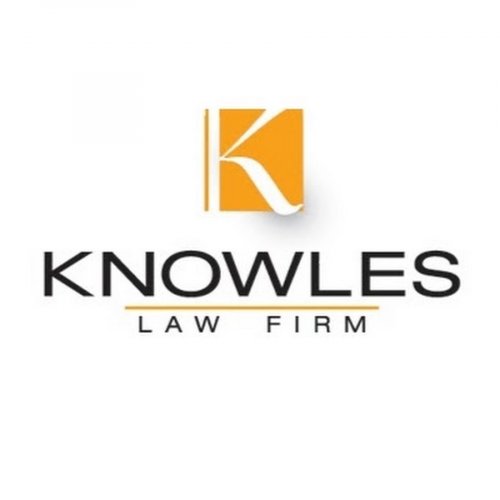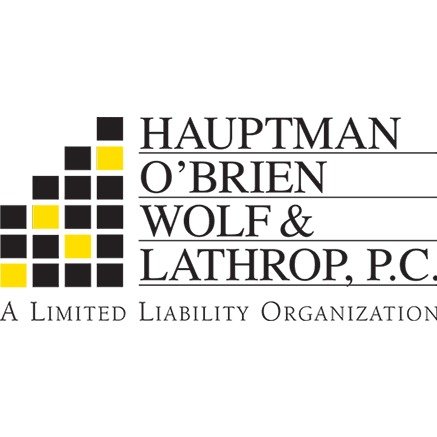Best Property Damage Lawyers in Omaha
Share your needs with us, get contacted by law firms.
Free. Takes 2 min.
List of the best lawyers in Omaha, United States
United States Property Damage Legal Questions answered by Lawyers
Browse our 1 legal question about Property Damage in United States and read the lawyer answers, or ask your own questions for free.
- MOVING COMPANY DAMAGED RENTAL HOME, FURNITURE AND NEW HOME
- MOVING COMPANY DAMAGED WALLS AND FURNITURE IN TWO HOUSES, THEY DIDNT USED PACKING BLANKETS OR MOVING EQUIPMENT, I FILED A DAMAGE CLAIM MID MOVE, AND RELIEVED THE WORKERS EARLY FROM SCHEDULED TIME TOOK PICS AND SUBMITTED TO THE MOVING COMPANY, NOW THE MOVING COMPANY IS INSINUATING WE CAUSED THE DAMAGE,... Read more →
-
Lawyer answer by T & A Legal
Hello, sorry about the damage to your walls and furniture. The moving company may be liable for a breach of contract or negligence. However, their liability will be determined largely by the contract between you and the moving company.Please note...
Read full answer
About Property Damage Law in Omaha, United States
Property damage law in Omaha, United States, covers a wide range of incidents where an individual's property is damaged due to another's negligence or intent. This can include damage resulting from car accidents, vandalism, weather events, or faulty products and services. Understanding the local laws and regulations is crucial for residents and business owners in Omaha looking to seek compensation or defend against claims related to property damage.
Why You May Need a Lawyer
Several common situations may necessitate legal assistance in property damage cases. These include disputes over insurance claims, complex legal paperwork, and the need to prove liability. A lawyer can help navigate these complexities, ensuring rights are protected and fair compensation is sought.
Moreover, if the damage results from negligence or intentional harm by another party, a lawyer can assist in gathering evidence, negotiating settlements, and representing your interests in court if necessary. Legal representation can be vital in ensuring all legal processes are followed correctly and efficiently.
Local Laws Overview
In Omaha, property damage claims generally fall under two categories: tort claims and contract claims. Tort claims are centered around negligence or intentional harm, while contract claims typically involve disputes over insurance coverage. Omaha follows Nebraska state laws where statutes dictate the time frames within which claims must be filed, commonly known as the statute of limitations. In most cases, this period is four years from the date of the damage.
Damage assessments may vary, with compensation generally covering repair or replacement costs. In some cases, additional damages may be sought for losses such as diminished property value or loss of use. Being aware of these local regulations is crucial for individuals seeking legal remedies for property damage.
Frequently Asked Questions
What should I do immediately after my property is damaged?
Document the damage with photographs and detailed notes. Notify your insurer promptly and file a police report if necessary. This documentation is crucial for the claims process.
How can I prove property damage caused by negligence?
Collect evidence including photographs, witness statements, and expert evaluations. A lawyer can help assess the evidence and strengthen your case.
What if my insurance claim is denied?
If your claim is denied, review the insurance contract to understand their reasoning. Consider consulting with a lawyer to explore appealing the decision or filing a lawsuit for breach of contract.
How is compensation for property damage calculated?
Compensation usually covers the cost of repairs or replacement. Courts may also consider additional factors like loss of use and emotional distress in some cases.
Can I claim for property damage caused by a natural disaster?
Claims depend on your insurance policy coverage. Review your policy details or consult with a lawyer for advice tailored to your situation.
What is the statute of limitations for filing a property damage claim?
In Nebraska, the statute of limitations for property damage claims is typically four years from the date the damage occurred.
Can I file a claim if I don’t have insurance?
You can still file a property damage claim against the responsible party regardless of insurance status. Legal advice is advisable in navigating such claims.
What happens if the party responsible for damage denies liability?
A lawyer can help build a strong case, collect evidence, and represent you in negotiations or court to hold the responsible party accountable.
Are there any local organizations that could assist with property damage issues?
Local legal aid organizations can provide assistance and resources. They can guide you on available options and legal processes at minimal or no cost.
How long does a property damage case take to resolve?
The duration varies based on the complexity of the case and the parties' willingness to negotiate. Simple cases may take months, whereas complex cases could take years.
Additional Resources
For more information on property damage and legal guidance, consider contacting the following resources:
- Omaha Bar Association for referral to specialized property damage attorneys.
- Nebraska Legal Aid for free or reduced-cost legal assistance.
- Local government offices for filing reports and accessing community resources.
Next Steps
If you require legal assistance for property damage, consider the following steps:
- Consult with an attorney specializing in property damage to discuss your case and options.
- Gather all relevant documentation, including insurance policies, correspondence, and evidence of damage.
- Research and connect with local resources that can provide additional support or insights.
Act promptly to ensure all legal avenues remain open and that you receive the necessary guidance through the process.
Lawzana helps you find the best lawyers and law firms in Omaha through a curated and pre-screened list of qualified legal professionals. Our platform offers rankings and detailed profiles of attorneys and law firms, allowing you to compare based on practice areas, including Property Damage, experience, and client feedback.
Each profile includes a description of the firm's areas of practice, client reviews, team members and partners, year of establishment, spoken languages, office locations, contact information, social media presence, and any published articles or resources. Most firms on our platform speak English and are experienced in both local and international legal matters.
Get a quote from top-rated law firms in Omaha, United States — quickly, securely, and without unnecessary hassle.
Disclaimer:
The information provided on this page is for general informational purposes only and does not constitute legal advice. While we strive to ensure the accuracy and relevance of the content, legal information may change over time, and interpretations of the law can vary. You should always consult with a qualified legal professional for advice specific to your situation.
We disclaim all liability for actions taken or not taken based on the content of this page. If you believe any information is incorrect or outdated, please contact us, and we will review and update it where appropriate.









